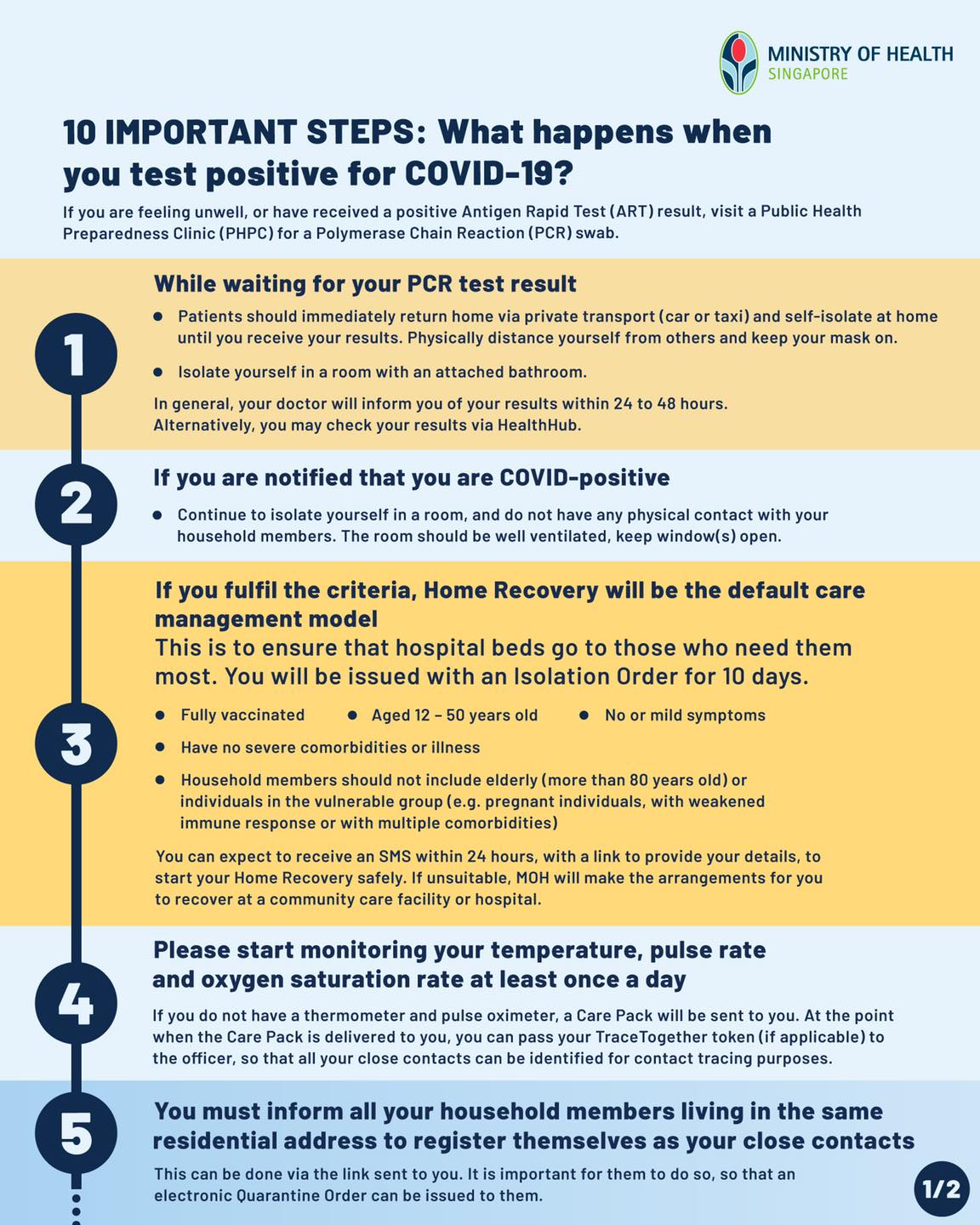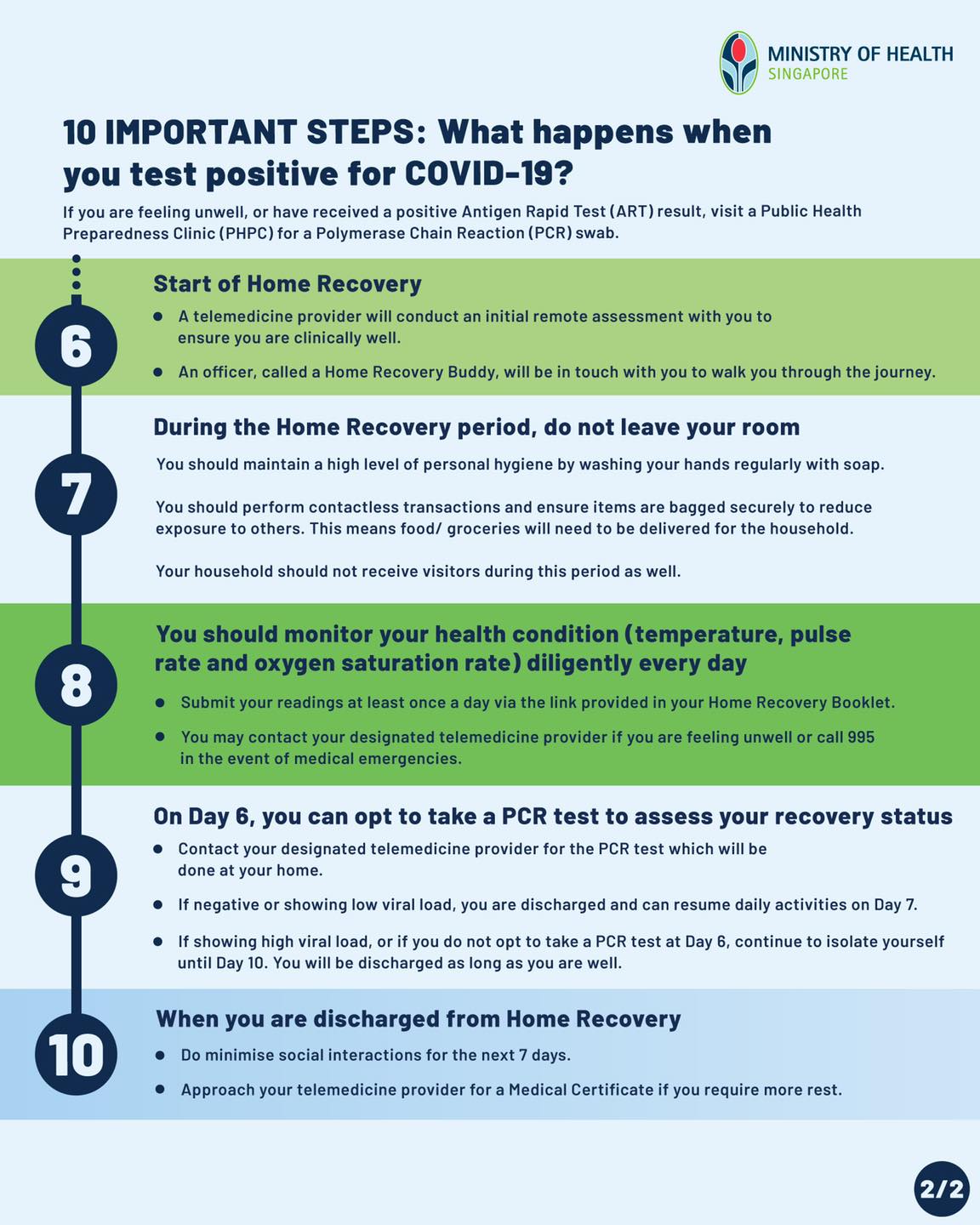What’s rising higher than your salary?
Sadly, it’s not your bank account, but the amount of daily local COVID-19 cases here in Singapore.
With the possibility of the virus spreading even more, so much so that we may even return to lockdown mode, there’s also been a need to relook and modify national health protocols to ensure everyone’s wellbeing.
Caught up in so many news articles that you’re confused about what’s going on?
Don’t worry – here’s everything you need to know about the new COVID-19 health protocols, as succinctly put by Health Minister Ong Ye Kung on Facebook.
Seniors To Receive Booster Shots
Mr Ong shared via his Facebook page that close to 140,000 seniors have already been invited to schedule appointments for their COVID-19 booster shots.
This follows earlier announcements that booster shots would be essential for seniors aged 60 and above to boost immunity, and that this program would roll out in September.
Seniors in this age group will be able to receive their booster shots at vaccination centres, polyclinics, or Public Health Preparedness Clinics from 14 September.
Just like how the earlier vaccination exercises were carried out, one can book their slots through an SMS sent to them by the Ministry of Health (MOH), which will be sent out over the next few days.
As for those who are immobile, fret not for there are mobile and home vaccination teams to visit homes for vaccine and booster shot administrations.
Those residing in nursing homes may also receive their booster shots starting today, 15 September.
Mr Ong also advised seniors to refrain from attending social gatherings and going out excessively in this period, regardless of vaccination status.
If you’re wondering if young people will be next to receive booster shots, the simple answer is that no one knows yet – with Mr Lawrence Wong saying that they are only still studying the possibility of young people receiving booster shots.
Home Recovery Will Be The Default
On Tuesday, 14 September, the MOH also announced that they would be shifting the default mode of recovery for some patients who have contracted COVID-19 in a new care model.
For fully vaccinated individuals aged 12 to 50 who have contracted the virus, have no or mild symptoms, nor any severe illnesses, and do not live with vulnerable people, they will have to recover at home.
#HomeRecovery, as the minister writes, will be the default mode starting 15 September.
Advertisements
Mr Ong added that since 98% of infected individuals have little to no symptoms, home recovery would be suitable and sufficient for them.
Considering the amount of rising cases, it is best for hospital beds and capacity to be reserved for those who need it most, to ensure everyone gets cared for.
Here’s a 10-step process of what you should do while under Home Recovery:


Home Quarantine orders have also been changed slightly – for sporadic cases, household members of confirmed cases will have to register themselves as close contacts in order to be issued an e-Quarantine-Order.
“If you live near someone who is quarantining or recovering from COVID-19 from home, please give your full understanding and moral support,” Mr Ong added.
Advertisements
Two New Community Care Facilities
The minister also wrote that by the end of September, there will be two new community care facilities set up, which holds a total capacity of 1,000 beds.
As for COVID-19 cases residing in the National Centre for Infectious Diseases and in hospitals, about “another 300 beds to 1,300 isolation beds” will be added to the capacity.
However, he stressed that the first call of action should be to approach general practitioners and polyclinics for less urgent medical problems.
This will assist emergency departments in prioritising more severe cases.
Read Also:
- S’pore Hopes China & US Will Become Friends Again So We Won’t Be Forced To Choose Sides
- Man Accidentally Set Hotel 81 Room on Fire After He Left 3 Lit Cigarettes on His Bed Frame
Featured Image: kandl stock/ shutterstock.com
Read Also:
- You Can Soon See “Northern Lights” in Gardens by the Bay & It’s Free
- Everything About the Eta Aquarids Meteor Shower That’ll Be in S’pore Sky in May
- S’porean Killed in Spain Had Bought Insurance Policy from Suspect
- Everything About the 15YO Who Lived in a Circuit Road Market Stall
- Walk-Ins for Some Traffic-Related Service in TP Be Discontinued & People Have Book Appointments Instead
- Certain Parts of Telok Blangah Hill Park to be Closed for 2 Years After Slope Failure
Advertisements

